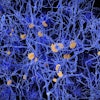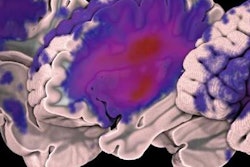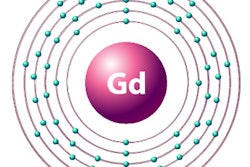Dear MRI Insider,
Artificial intelligence (AI) continues to make its mark in MRI. The latest example comes from the University of California, Los Angeles, where researchers are combining the modality with a machine-learning algorithm to predict treatment outcomes for people with obsessive-compulsive disorder (OCD).
By targeting functional connectivity between key brain regions, the algorithm identified two networks that were most instrumental in forecasting which OCD patients would have the greatest improvement after therapy. If successfully replicated, the results could lead to more efficient use of healthcare resources and faster recovery for people with OCD. Read more about this fascinating advance in our Insider Exclusive.
AI could also make it possible for clinicians to use as little as 10% of gadolinium-based contrast to achieve the same level of image quality. Researchers at Stanford University trained a deep-learning algorithm to create synthesized images that approximate full-dose, contrast-enhanced brain MRI studies. Most interestingly, the results are based only on precontrast and postcontrast acquisitions at just 10% of the standard gadolinium dose.
In addition, German researchers have developed a novel breast MRI technique that greatly reduces false positives and increases the detection of breast cancer without the need for contrast. The approach features a form of diffusion-weighted MRI known as diffusion kurtosis imaging and a software algorithm based on kurtosis radiomics, which extracts imaging data to accurately characterize the lesions.
The art of AI also could soon benefit stroke patients. A team of international researchers has made available a collection of 304 T1-weighted MR images so their counterparts around the world can develop algorithms to better evaluate stroke patients and personalize treatment. The open-source dataset is known as the Anatomical Tracings of Lesions After Stroke (ATLAS). Through this resource of manually segmented lesions and metadata, the researchers hope to identify biological markers that could predict which rehabilitation therapies will produce the best response.
In other news, everyone knows a 3-tesla MRI scan can be quite noisy. Chinese researchers have found that even with ear protection, increased acoustic noise from the scanner can cause a temporary reduction in a patient's ability to hear. The good news is that it seems there are no long-lasting adverse effects.
Do you remember the series of mysterious illnesses that occurred among diplomatic personnel at the U.S. embassy in Havana in 2016 and 2017? Unfortunately, MRI scans were unable to shed light on the mystery. The study, however, reported that the staff experienced symptoms similar to concussion but without evidence of trauma.
Make a visit to the MRI Community at AuntMinnie.com part of your daily routine for the latest news and groundbreaking research from around the world.


.fFmgij6Hin.png?auto=compress%2Cformat&fit=crop&h=100&q=70&w=100)





.fFmgij6Hin.png?auto=compress%2Cformat&fit=crop&h=167&q=70&w=250)











